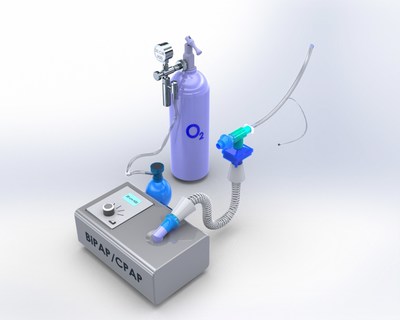The U.S.
Food and Drug Administration (FDA) approved
the first blood test that looks for the antibodies against the novel
coronavirus that causes COVID-19. This is different than assays that
test for presence of the virus—those test to determine if a patient has
COVID-19. These new antibody tests determine if the person was exposed
to the virus, had COVID-19 and recovered. And it suggests, if positive,
that the person is now immune to COVID-19 and can’t get it again.
Research Triangle Park, North Carolina-based
Cellex was
granted an emergency use authorization (EUA) on its test yesterday.
The test is performed on a blood sample taken from a patient’s vein
and can be performed by laboratories certified under the Clinical
Laboratory Improvement Amendments of 1988 (CLIA), the Health and Human
Services division that oversees clinical diagnostic testing in the
United States.
The authorization stated, in part, “Results are for the detection of
SARS-CoV-2 antibodies, IgM and IgG that are generated as part of the
human immune response to the virus. IgM antibodies to SARS-CoV-2 are
generally detectable in blood several days after initial infection,
although levels over the course of infection are not well characterized.
IgG antibodies to SARS-CoV-2 become detectable later following
infection. Positive results for both IgG and IgM could occur after
infection and can be indicative of acute or recent infection.”
Mayo Clinic is
reportedly to begin antibody testing on Monday as well, using an internally developed test.
Elitza Theel,
director of the Mayo Clinic laboratory testing COVID-19 antibody tests,
told Minnesota Public Radio (MPR), “It’s important to know that these
types of tests are different than all of the molecular tests that are
being done off of nasal swabs or throat swabs. Those tests detect viral
genetic material [to show whether the coronavirus has infected that
person].”
Theel also pointed out that, in some cases, it takes 10 to 11 days
for an individual’s immune system to attack the virus and produce the
antibodies. That’s why the tests won’t be used to diagnose patients with
COVID-19 that are showing symptoms within the last two or three days.
Theel also says Mayo hopes to have the tests available next week, but
because of a limited supply, will be doing a slow roll out and hope
that commercial manufacturers will speed production in the next few
weeks.
“FDA approval is not needed at this time,” Theel said. “However,
laboratories that are offering these tests have to go through a very
rigorous verification process to make sure that the tests they’re
offering provide the right results.”
Part of the reason these antibody tests would be valuable is it can
provide guidance on people potentially returning to work and continuing
quarantine.
There is also the potential to use antibodies against the virus for therapy against the disease.
Theel said, “As we wait for antivirals and vaccines to be developed
and deployed, we need some sort of bridging therapy. So, the idea here
is to identify individuals who have recovered from COVID-19, collect
their plasma, make sure that it has the antibodies, and then use that
plasma to treat acutely ill patients.”
Of the tests in general, and specifically the Cellex test, Alan Wu,
professor of laboratory medicine at the University of California, San
Francisco and chief of the clinical chemistry and toxicology
laboratories at Zuckerberg San Francisco General Hospital, told
USA Today,
“Antibody positivity likely means a person has recovered and can’t be
reinfected. This test will be extremely valuable, especially for
healthcare workers.”
Healthcare workers are, obviously, at the front lines of this battle and at high risk of catching COVID-19.
“We could sort out who among the health care workers has antibodies
and assign them to coronavirus patients,” said William Schaffner, a
professor of preventive medicine and infectious disease at Vanderbilt
University in Nashville, Tennessee. “They’d still use protection, but
would have a much greater sense of security.”
https://www.biospace.com/article/fda-approves-1st-covid-19-antibody-test/
